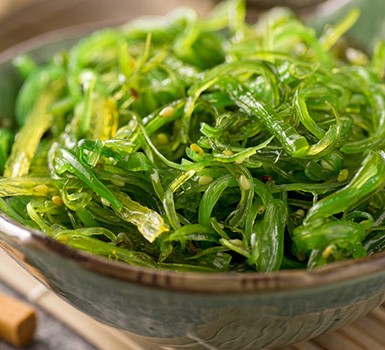According to experts seaweed could be a key crop in transitioning away from our meat-based diet as around 30% of it is composed of protein.
Seaweed is considered sustainable as it doesn’t use land and fresh water, resources that are in scarce supply. Due to the expanding population, we cannot extend terrestrial farmland, forcing farmers and companies to shift their focus to the ocean.
Researchers have also discovered many other uses of sea lettuce, for example: The KTH Royal Institute of Technology in Stockholm pioneered the extraction of polysaccharides to make plastic films and other plastic materials for use in everyday life items. Even after all useful substances have been removed, the remaining seaweed could be used as a biofuel in sustainable power generation.
For centuries, seaweed has been consumed in coastal communities worldwide, becoming the main ingredient in many traditional recipes, especially in Asia. Today, Asia produces an estimated 90% of the £14 billion seaweed market, although seaweed plantations are becoming increasingly common in many countries around the world such as Norway, France and the UK where these healthy, high protein, vegetarian alternatives are becoming more popular and easier to access.
Finding areas suitable for seaweed growth can be complicated, however The Seaweed Company is experimenting with the suggestion of growing seaweed between offshore wind turbines, which often facilitate the space and accessibility needed to cultivate a crop efficiently.
I believe it would be a positive transition overall but due to Western culture being unfamiliar with seaweed as a food source, people may be reluctant to buy this meat alternative.

